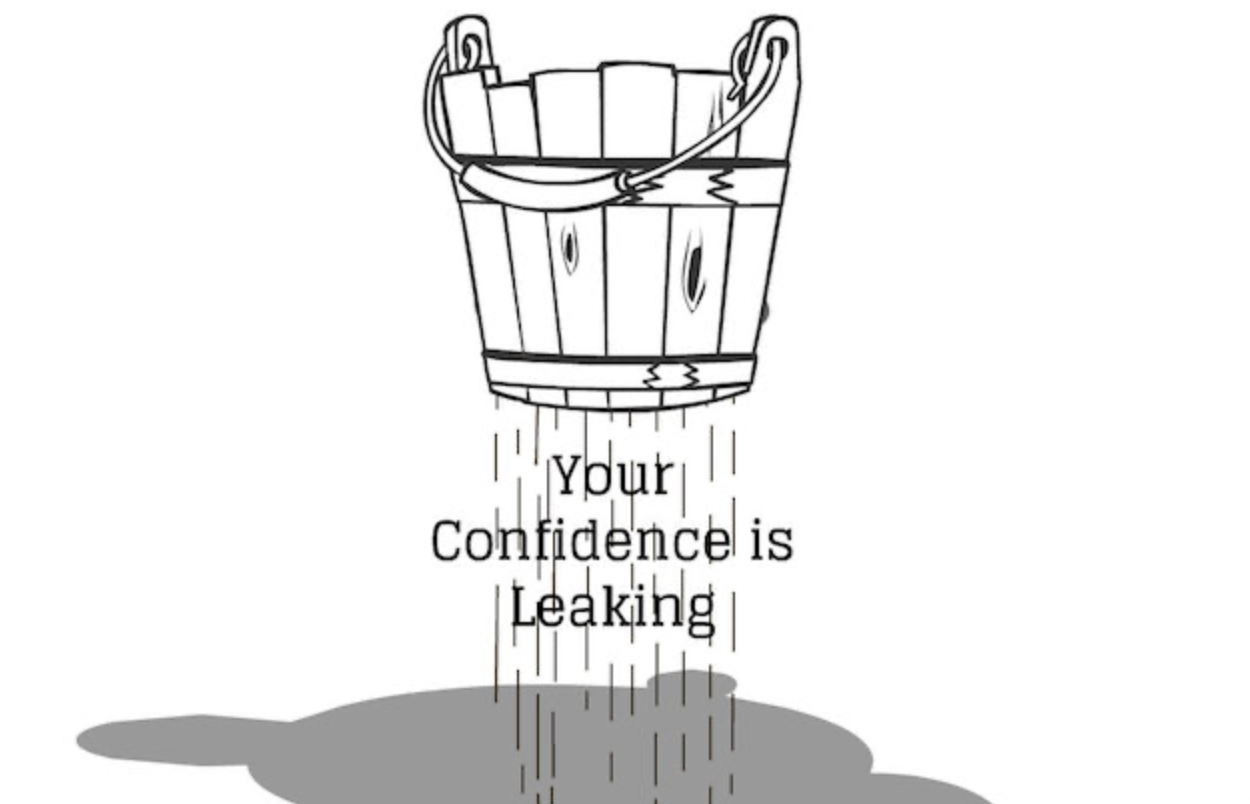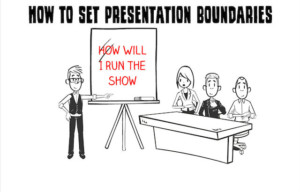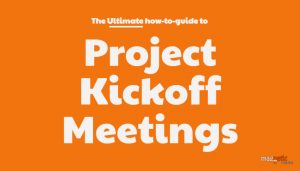Your confidence is your biggest asset as a communicator. If you don’t invest time and energy to protect it, it will erode over time.
Before you invest in building more confidence, start plugging the leaks in the foundation. If you don’t plug the holes, the confidence you add will leak out. I work with private coaching client’s who have spent 20+ years speaking in front of large groups and executives, and all of a sudden started to develop speaking anxieties. Even though the anxieties seem to appear suddenly, the cause had built up for years.
This article is going to help you build the immunity to protect your confidence. Because, if you are not are aware of it yet, there are things you do that allow your confidence to leak and erode away.
Here are three behaviors that might be eroding your confidence, and how to stop them.
1. Practicing public speaking while nervous.
You have heard the saying: practice, practice, practice and then your anxiety will naturally go away. Not true. I believe if you practice public speaking when you are nervous, then you are also practicing anxiety. Sure if you practice, you will get good at public speaking, but you will also get good at feeling anxiety.
I believe that practice in a safe, friendly and fun environment is the best way to build and protect your confidence. I built my confidence doing fun improv and acting classes, and that’s why I incorporated that in all of our training.
The next time you are rehearsing for a presentation make sure that you are relaxed and comfortable. Because without realizing it you are also practicing your ability to be comfortable.
2. Practicing in front of the mirror
Initially, I found practicing in front of the mirror to be very helpful for building my skills. Then, two years after I started speaking for a living, I began to feel too self-conscious and anxious every time I was in front of a large group. Working with my speaking coach, I realized that my practice in front of the mirror was training me to be self-conscious. Since then, I changed the way I practiced and started seeing improvements in my speaking confidence right away.
I now practice by imagining my speaking audience in front of me. I speak to them, I see them react, and I hone in on my message. This has trained me to be an audience-centric presenter, instead of self-centric. I noticed that aside from improving my confidence, having an audience-centric approach, helps me come up with better messages.
3. Thinking that public speaking confidence is an isolated factor
So many people tell me all the time that their content is great, only if they can build the confidence to say it. I don’t buy it.
I believe that your confidence is not an isolated factor. Your delivery skills and how you structure your content has a major effect on your confidence and vice versa. If you structure your presentation well, it will have a positive impact on how the audience receives it and in turn positively impact your confidence. If your presentation is not well-organized, or structured, it will cause a negative audience reaction and in turn, negatively impact your confidence. The same can be said about delivery skills. Makes sense?
If you don’t, then your lack of skills will degrade your confidence over time.—–
If you start thinking about your speaking confidence as an asset, you will begin to protect and build it faster than you ever imagined. Before you know it, your speaking confidence will spread into all areas of your life and enhance it.
It all starts with stopping the leaks and the erosion in you’re confidence’s foundation. What causes your speaking confidence erosion? Please share in the comments below. Would love to read and respond to them.




